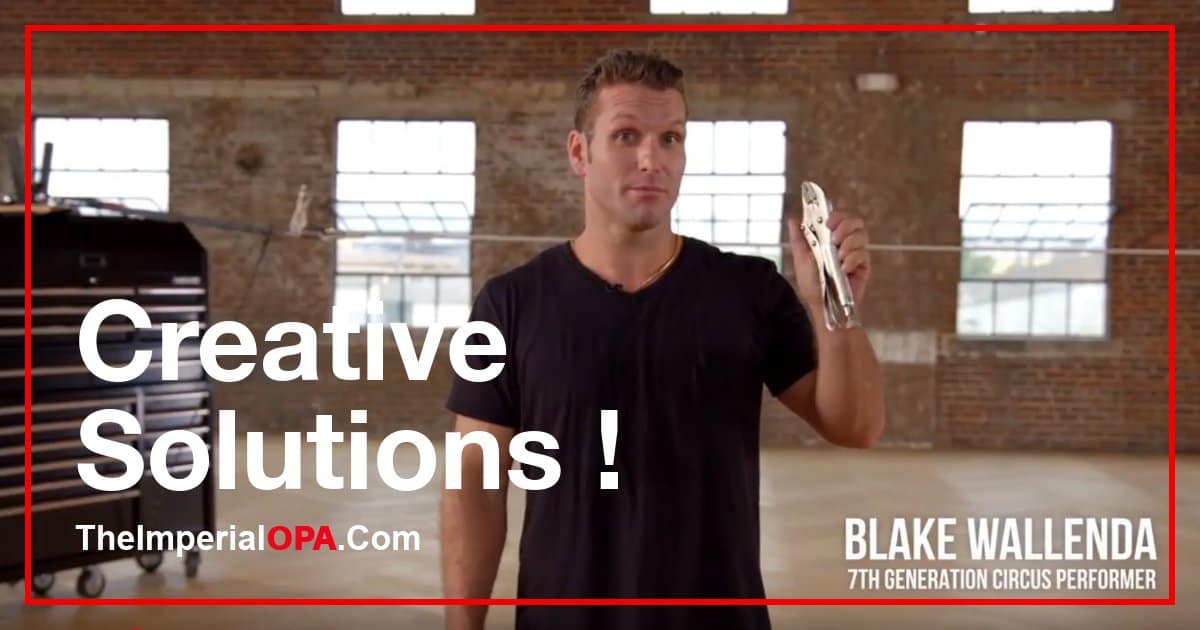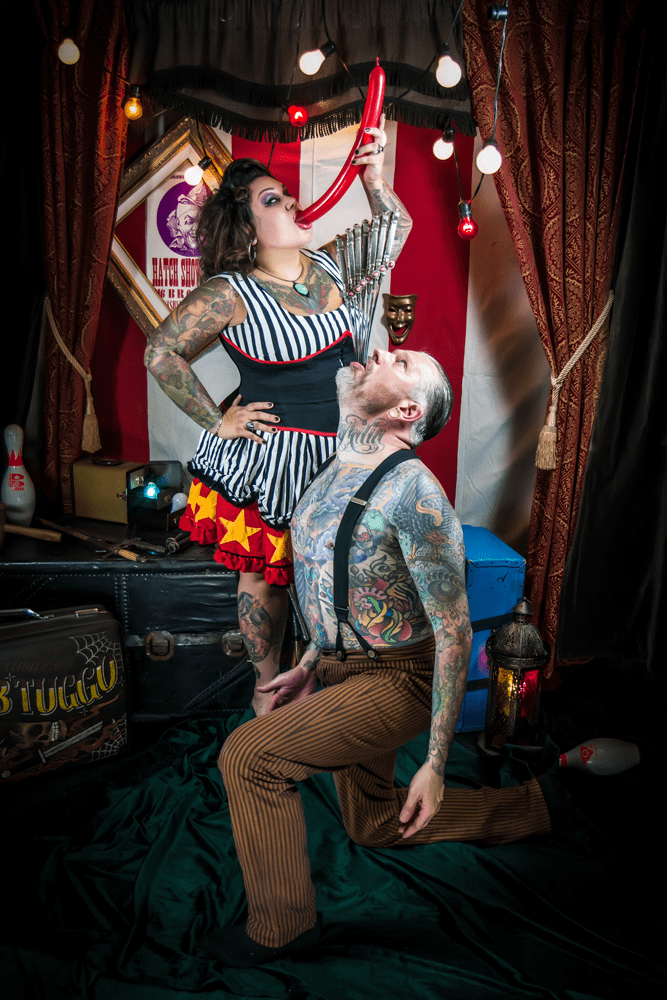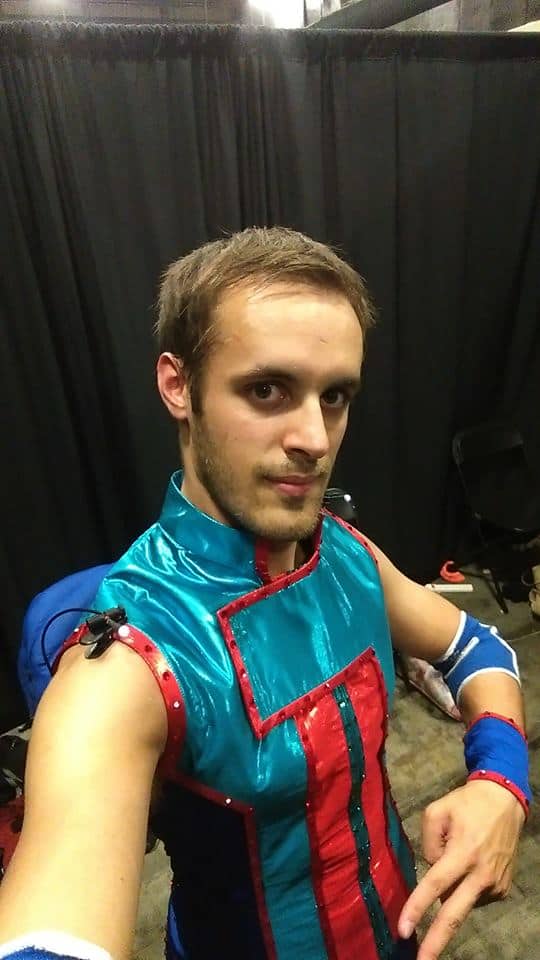



Read more Insights :
Artist Insight:
Rocco the Acrobat GRAVITY Entertainment
1: What is your name and stage name or company if you have one?
Rocco. Rocco the Acrobat (DBA), GRAVITY Entertainment (DBA)
2: What is your skill, craft, profession, or industry that you are in… In your own words?
I call myself a professional acrobat first, but I do most circus props at a professional level, including object manipulation such as juggling, equilibristics such as rolla bolla and unicycling, and partner work, including hand to hand.
3: What got you interested in, or involved with circus?
I had just finished a little over 9 years of service in the U.S. military and after demobilizing I met some people doing low level partner acrobatics similar to what is now a huge fad called acroyoga. It interested me enough to try other things including pole acrobatics. I wasn't very good yet but I managed to cobble together my first shows, which were largely fire shows, but also a 9 minute solo show without fire. It was terrible, but the local news covered me and gave me footage. I used that footage to make my first promo reel. By some luck, a busking festival in Canada liked it enough to offer me a contract, probably because somebody bailed on them last minute. The catch was that they needed at least a 30 minute show. I wrote the whole show on the plane and in the hotel. To make sure I could remember it all I wrote notes on my arms and even on the back of my props, telling me what do do next. I didn't have the most polished show by far, but of the six performers at that festival, I made the third largest "hat" (income). I had so much fun I delayed my flight home to spend some time with new friends I met.
4: What is the biggest challenge you faced in your professional career so far?
Just after my first successful Canadian festival (above), I booked a U.S. tour wherein I performed at multiple festivals in Florida. Over a 2 week span, I made less than $50. Along the way I caught a really bad cold, had to sleep in my car, and mostly lived off of cereal mixed with powdered milk. Pretty humbling. I have also separated both shoulders, sprained ankles and wrists, and even once blacked out on stage from a fall.
5: What is one fond memory you have of the circus?
Cirq'ulation Locale was a fun tour in Western Europe. We toured through Belgium, France, Netherlands, Spain, and Germany with our juggling and acrobatics show. The show featured two very high level jugglers and myself. We did juggling on a huge scaffolding with a trampoline that we would build up every day at each new venue. I met a lot of amazing performers from all over Europe and I also met a rather fetching french girl.
6: Where do you see your professional career going, where would you like to end up?
I don't ever expect to be a household name, but I'd like to have worldwide notoriety among acrobats. I've got a decent start too; If you mention the name "Rocco" at an acrobatic or even juggling festival, someone is bound to know of me.
7: If you could change one thing about your field in the circus in the present, present or future … What would it be?
Better collaboration on rates that should be charged for skills within local areas, booking rates capped at 20%. When I toured Europe, artists didn't even have to make money at their craft to survive because of government funding. In the U.S, predatory companies take a lot of money from artists. It's not just booking agencies either, it's also companies like Raw Art, or America's Got Talent, that promise exposure but don't pay variety artists but make huge profits off of them anyway.
8: What is the one best piece of advice you can give to someone starting off in this field?
Circus has changed a lot recently. Many starving companies are still trying to run classic tent shows, or "mud shows" as we used to call them, and barely making it, or even failing. This style was much more effective when people were more easily impressed, but when you can watch 9-year-olds doing handstands on youtube, the bar has been raised. You have to give people a full- fledged experience and you have to have polish. An act without artistry and polish will not make it far in today's world.
9: If someone wanted to learn more about you or what you do, where should they go?
10: Is there anything else on your mind about circus or this field you would like the reader of this to know?
---
About: Artist Insights
The Imperial OPA is a leader in the Circus field, we are the Circus of Atlanta, and as such its our duty to help lift up others.
Further, we believe that knowledge is power. Knowledge can help inspire, help lift up, and better direct those in the field with us currently and those who are coming up. Knowledge is gained in time, training and living and it costs but time to pass along.
Beyond this, guests and friends want to know more about who these artists are, what inspires circus people to perform, what was the inspiration for them to start living this life. So many questions.
To address all these points and many more, we present the Artist Insights program. This program is aimed at interviewing people and spreading knowledge and supporting those around us on their search for knowledge. We hope you enjoy reading the blog posts form time to time from various artists.
Want to be interviewed as well?
We are always looking for Artists, Producers, Circus owners and others who want to pass along their knowledge to help others learn.
If you are interested, send us an email (* Circus(at)theimperialopa(dot)com ) and let us know a bit about you.
We will follow up with questions for you.


